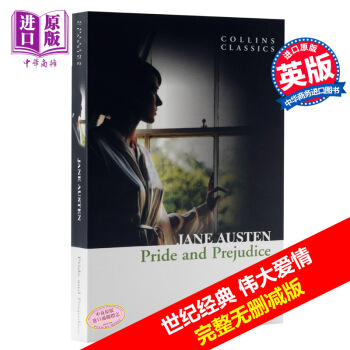![Northanger Abbey 诺桑觉寺 [平装]](https://pic.tinynews.org/19017052/d20caa94-56bc-4f42-8083-5c37215e8c95.jpg)

具体描述
编辑推荐
Austen is the hot property of the entertainment world with new feature film versions of Persuasion and Sense and Sensibility on the silver screen and Pride and Prejudice hitting the TV airwaves on PBS. Such high visibility will inevitably draw renewed interest in the original source materials. These new Modern Library editions offer quality hardcovers at affordable prices.内容简介
The earliest of her six major novels, NorthangerAbbey remained unpublished until after Jane Austen's death. A deliciously witty satire of popular Gothic romances, it is perhaps Austen's lightest, most delightful excursion into a young woman's world. Catherine Morland, an unlikely heroine—unlikely because she is so ordinary—forsakes her English village for the pleasures and perils of Bath. There, among a circle of Austen's wonderfully vain, dissembling, and fashionable characters, she meets a potential suitor, Henry Tilney. But with her imagination fueled by melodramatic novels, Catherine turns a visit to his home, Northanger Abbey, into a hunt for dark family secrets. The result is a series of hilarious social gaffes and harsh awakenings that for all of Austen's youthful exuberance nevertheless conveys her mature vision of literature and life—and the consequences of mistaking one for the other.作者简介
Jane Austen was born on December 16, 1775 at Steventon near Basingstoke, the seventh child of the rector of the parish. She lived with her family at Steventon until they moved to Bath when her father retired in 1801. After his death in 1805, she moved around with her mother; in 1809, they settled in Chawton, near Alton, Hampshire. Here she remained, except for a few visits to London, until in May 1817 she moved to Winchester to be near her doctor. There she died on July 18, 1817.As a girl Jane Austen wrote stories, including burlesques of popular romances. Her works were only published after much revision, four novels being published in her lifetime. These are Sense and Sensibility (1811), Pride and Prejudice (1813), Mansfield Park (1814) and Emma (1816). Two other novels, Northanger Abbey and Persuasion, were published posthumously in 1818 with a biographical notice by her brother, Henry Austen, the first formal announcement of her authorship. Persuasion was written in a race against failing health in 1815-16. She also left two earlier compositions, a short epistolary novel, Lady Susan, and an unfinished novel, The Watsons. At the time of her death, she was working on a new novel, Sanditon, a fragmentary draft of which survives.
简·奥斯汀,是英国著名女性小说家,她的作品主要关注乡绅家庭女性的婚姻和生活,以女性特有的细致入微的观察力和活泼风趣的文字真实地描绘了她周围世界的小天地。
精彩书摘
Chapter OneNo one who had ever seen Catherine Morland in her infancy, would have supposed her born to be an heroine. Her situation in life, the character of her father and mother, her own person and disposition, were all equally against her. Her father was a clergyman, without being neglected, or poor, and a very respectable man, though his name was Richard—and he had never been handsome. He had a considerable independence, besides two good livings—and he was not in the least addicted to locking up his daughters. Her mother was a woman of useful plain sense, with a good temper, and, what is more remarkable, with a good constitution. She had three sons before Catherine was born; and instead of dying in bringing the latter into the world, as any body might expect, she still lived on—lived to have six children more—to see them growing up around her, and to enjoy excellent health herself. A family of ten children will be always called a fine family, where there are heads and arms and legs enough for the number; but the Morlands had little other right to the word, for they were in general very plain, and Catherine, for many years of her life, as plain as any. She had a thin awkward figure, a sallow skin without colour, dark lank hair, and strong features;—so much for her person;—and not less unpropitious for heroism seemed her mind. She was fond of all boys' plays, and greatly preferred cricket not merely to dolls, but to the more heroic enjoyments of infancy, nursing a dormouse, feeding a canary-bird, or watering a rose-bush. Indeed she had no taste for a garden; and if she gathered flowers at all, it was chiefly for the pleasure of mischief—at least so it was conjectured from her always preferring those which she was forbidden to take.—Such were her propensities—her abilities were quite as extraordinary. She never could learn or understand any thing before she was taught; and sometimes not even then, for she was often inattentive, and occasionally stupid. Her mother was three months in teaching her only to repeat the "Beggar's Petition;" and after all, her next sister, Sally, could say it better than she did. Not that Catherine was always stupid,—by no means; she learnt the fable of "The Hare and many Friends," as quickly as any girl in England. Her mother wished her to learn music; and Catherine was sure she should like it, for she was very fond of tinkling the keys of the old forlorn spinnet; so, at eight years old she began. She learnt a year, and could not bear it;—and Mrs. Morland, who did not insist on her daughters being accomplished in spite of incapacity or distaste, allowed her to leave off. The day which dismissed the music-master was one of the happiest of Catherine's life. Her taste for drawing was not superior; though whenever she could obtain the outside of a letter from her mother, or seize upon any other odd piece of paper, she did what she could in that way, by drawing houses and trees, hens and chickens, all very much like one another.—Writing and accounts she was taught by her father; French by her mother: her proficiency in either was not remarkable, and she shirked her lessons in both whenever she could. What a strange, unaccountable character!—for with all these symptoms of profligacy at ten years old, she had neither a bad heart nor a bad temper; was seldom stubborn, scarcely ever quarrelsome, and very kind to the little ones, with few interruptions of tyranny; she was moreover noisy and wild, hated confinement and cleanliness, and loved nothing so well in the world as rolling down the green slope at the back of the house.
Such was Catherine Morland at ten. At fifteen, appearances were mending; she began to curl her hair and long for balls; her complexion improved, her features were softened by plumpness and colour, her eyes gained more animation, and her figure more consequence. Her love of dirt gave way to an inclination for finery, and she grew clean as she grew smart; she had now the pleasure of sometimes hearing her father and mother remark on her personal improvement. "Catherine grows quite a good-looking girl,—she is almost pretty to day," were words which caught her ears now and then; and how welcome were the sounds! To look almost pretty, is an acquisition of higher delight to a girl who has been looking plain the first fifteen years of her life, than a beauty from her cradle can ever receive.
Mrs. Morland was a very good woman, and wished to see her children every thing they ought to be; but her time was so much occupied in lying-in and teaching the little ones, that her elder daughters were inevitably left to shift for themselves; and it was not very wonderful that Catherine, who had by nature nothing heroic about her, should prefer cricket, base ball, riding on horseback, and running about the country at the age of fourteen, to books—or at least books of information—for, provided that nothing like useful knowledge could be gained from them, provided they were all story and no reflection, she had never any objection to books at all. But from fifteen to seventeen she was in training for a heroine; she read all such works as heroines must read to supply their memories with those quotations which are so serviceable and so soothing in the vicissitudes of their eventful lives.
用户评价
从文学技法的角度来看,这部作品在视角转换和信息披露上做得极其老练。作者似乎总能在关键时刻,通过一个旁观者的视角,点醒主人公(以及读者)那些先前被蒙蔽的真相。这种“慢热”的真相揭示过程,极大地增强了阅读的参与感。你必须像侦探一样,将那些零星的线索和不经意的评论拼凑起来,才能构建出完整的图景。书中对“感知”和“现实”之间差距的探讨,简直可以拿出来单独分析。它教会我们,仅仅依靠接收到的信息和自身的情感投射去构建世界,是多么危险的事情。每当主人公的幻想破灭时,我们都能清晰地感受到那种从云端跌落的震撼,但这并非是悲剧性的,而更像是一种成长的阵痛。这种通过情节推动主题,最终指向对理性思考的推崇,使得整本书的立意非常高远,绝非仅仅是一部消遣之作。
评分坦白讲,我一开始对这类背景设定的小说抱有一丝保留,总担心会过于沉闷或说教。但出乎意料的是,这部作品的幽默感实在太妙了。它不是那种直白的滑稽,而是一种建立在敏锐观察之上的、带着讥诮意味的智慧。那种不动声色地嘲讽那些不合时宜的矫揉造作,真是让人忍不住嘴角上扬。许多场景,比如主角对某些“哥特式”情节的过度想象,与接踵而至的现实反差,所产生的喜剧效果是如此自然和谐。这种幽默感,似乎也成了作者对抗当时某些僵化社会规范的一种温和而有效的武器。它让沉重的社会议题变得轻盈可读,让读者在享受故事的同时,也能体会到一种智力上的愉悦。可以说,这种恰到好处的调侃,是整部作品的灵魂之一,让它摆脱了许多同类作品的刻板印象。
评分这部小说真是让人欲罢不能,我几乎是连夜读完的。作者的笔触细腻入微,对于人物心理的刻画简直是入木三分。尤其是对于女主人公那种既天真又带着一丝早熟的矛盾情感的展现,让我感同身受。你几乎能透过文字,看到她在那些贵族沙龙中小心翼翼地观察周围的一切,试图从那些彬彬有礼的举止背后,窥探到更深层次的动机和秘密。那种对浪漫和戏剧性的向往,与现实的平淡和偶尔的残酷之间的拉扯,写得太真实了。书中的场景设置也极其考究,那些古老的庄园、幽暗的回廊,都成了烘托人物心境的绝佳背景。每次读到某些关键情节时,我都能清晰地感受到那种扑面而来的英伦乡村气息,混合着一丝丝挥之不去的幽默感。虽然故事的主线看似围绕着爱情和婚姻展开,但它对当时社会风俗的讽刺,尤其是对那些虚伪做作的贵族阶层的揶揄,绝对是高明且辛辣的。不得不说,阅读体验极佳,完全沉浸其中,仿佛自己也成了那个身处漩涡中心的观察者。
评分我得说,这本书的叙事节奏把握得相当到位,它不像某些经典名著那样缓慢得令人望而却步,而是恰到好处地牵引着读者的好奇心。一开始的铺垫或许显得有些日常,但当你进入到那些复杂的社交场合后,情节的张力便迅速提升。我特别欣赏作者在处理对话时的那种机智和锋芒,人物之间的唇枪舌剑,往往比那些所谓的“重大事件”更能体现他们的性格和阶层属性。比如,那些关于品味、礼仪、乃至文学鉴赏的争论,表面上是闲聊,实则暗藏着价值判断和身份认同的较量。读到那些误会产生、谣言四起的地方,我甚至能感觉到一种令人窒息的社交压力,仿佛自己也害怕说错话,做错事。这种对日常生活中微妙权力关系的捕捉,让我对那个时代的理解加深了不止一个层面。通读下来,你会发现,真正的“戏剧性”往往不是惊天动地的变故,而是人心中的那些细微的波动和不安。
评分这本书的结构布局非常精巧,它像是一张层层递进的网,将不同的社会群体和他们的生活方式巧妙地编织在一起。我尤其喜欢作者在描绘不同家庭环境时所展现出的那种对比——一派是恪守传统、注重体面与教养的,另一派则是相对自由散漫、更追求自我感受的。这种对比不仅仅是物质层面的差异,更是价值观的冲突。书中对于“诚实”与“虚饰”的探讨,贯穿始终,让人不禁反思,在那个讲究场面和身份的社会里,真诚究竟是一种美德还是一种负担?每次读到一些角色因为缺乏洞察力而陷入窘境时,我都替他们感到着急,但转念一想,或许我们自己,在面对信息不全或带有偏见时,也未尝不是如此呢?这种引发自我审视的力量,是优秀文学作品不可替代的价值所在。总而言之,它是一次对特定时代风貌和人性复杂性的深刻考察。
评分还没看过,名著
评分很好的书。
评分东西非常好,我们大家都喜欢!
评分很好的书。
评分活动期间囤了很多书,矮脚鸡版本就是很实惠,很好用,存起来~还差几本静静等~
评分给力给力真的很给力啊正好十五字
评分The earliest of her six major novels, NorthangerAbbey remained unpublished until after Jane Austen's death. A deliciously witty satire of popular Gothic romances, it is perhaps Austen's lightest, most delightful excursion into a young woman's world. Catherine Morland, an unlikely heroine—unlikely because she is so ordinary—forsakes her English village for the pleasures and perils of Bath. There, among a circle of Austen's wonderfully vain, dissembling, and fashionable characters, she meets a potential suitor, Henry Tilney. But with her imagination fueled by melodramatic novels, Catherine turns a visit to his home, Northanger Abbey, into a hunt for dark family secrets. The result is a series of hilarious social gaffes and harsh awakenings that for all of Austen's youthful exuberance nevertheless conveys her mature vision of literature and life—and the consequences of mistaking one for the other.
评分好薄的一本书
评分非常好,纸很新很白,买齐了简奥斯汀,开心
相关图书
本站所有内容均为互联网搜索引擎提供的公开搜索信息,本站不存储任何数据与内容,任何内容与数据均与本站无关,如有需要请联系相关搜索引擎包括但不限于百度,google,bing,sogou 等
© 2026 book.idnshop.cc All Rights Reserved. 静思书屋 版权所有

![The Berenstain Bears and Too Much Vacation贝贝熊系列 [平装] [3-7岁] pdf epub mobi 电子书 下载](https://pic.tinynews.org/19035389/448d54a3-95ab-45df-a2dd-50b8b814e091.jpg)
![Sam Johnson and the Blue Ribbon Quilt [平装] [4岁及以上] pdf epub mobi 电子书 下载](https://pic.tinynews.org/19092875/550bebbdN45c41a30.jpg)
![What's Alive? (Let's-Read-and-Find-Out Science 1)[什么是“活的”?] 英文原版 [平装] [4岁及以上] pdf epub mobi 电子书 下载](https://pic.tinynews.org/19093745/550bf490N0f9c2214.jpg)
![CAM Jansen The Mystery of the Gold Coins #5 [平装] [8岁及以上] pdf epub mobi 电子书 下载](https://pic.tinynews.org/19140060/70a860a1-be2b-4497-9151-d00d4922c0cf.jpg)
![The Spiffiest Giant in Town 英文原版 [平装] [3岁及以上] pdf epub mobi 电子书 下载](https://pic.tinynews.org/19140163/90197aa4-2a11-4936-aab8-4cc00a59bca5.jpg)
![Lonely Planet: Cambodia (Country Guide)孤独星球:柬埔寨 [平装] pdf epub mobi 电子书 下载](https://pic.tinynews.org/19251086/rBEhWVNLj04IAAAAAAC0vQNHNl8AALxpgARmOUAALTV401.jpg)
![The Goldfinch金翅雀 英文原版 [平装] pdf epub mobi 电子书 下载](https://pic.tinynews.org/19456304/rBEhWlLVEtYIAAAAAAyfqDUrLDYAAH5RQBL3pkADJ_A917.jpg)
![Junie B. Jones Complete Kindergarten Collection: [6-9岁] pdf epub mobi 电子书 下载](https://pic.tinynews.org/19510877/565e5517N62cd3a3a.jpg)
![Biscuit Goes Camping [平装] [4-8岁] pdf epub mobi 电子书 下载](https://pic.tinynews.org/19542057/55aefb41Nbf923b4d.jpg)
![Rosa Parks [平装] [5-8岁] pdf epub mobi 电子书 下载](https://pic.tinynews.org/19542854/55b84e96Nbd3d01c4.jpg)






![My Weird School #14: Miss Holly Is Too Jolly![疯狂学校#14:霍莉小姐太活泼!] [平装] [6岁及以上] pdf epub mobi 电子书 下载](https://pic.tinynews.org/19004113/550bf363Nc6f99ed1.jpg)
![My Weird School #17: Miss Suki Is Kooky! 疯狂学校#17:苏琪小姐是怪人! [平装] [6岁及以上] pdf epub mobi 电子书 下载](https://pic.tinynews.org/19004286/550bf1f1Nf285f051.jpg)
![The Secret Garden[秘密花园] 英文原版 [平装] pdf epub mobi 电子书 下载](https://pic.tinynews.org/19009245/550be6b3Nd9bd3b28.jpg)
![Doctor De Soto Goes to Africa索托医生去非洲 [平装] [4-8岁] pdf epub mobi 电子书 下载](https://pic.tinynews.org/19009547/550be75cN6d6d56a1.jpg)